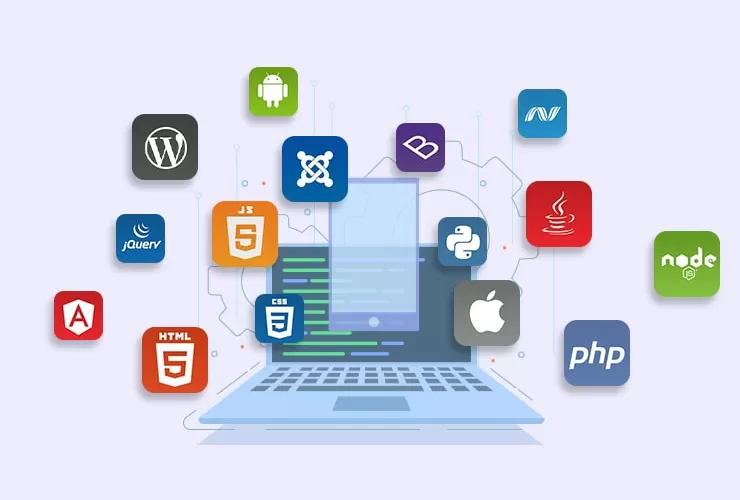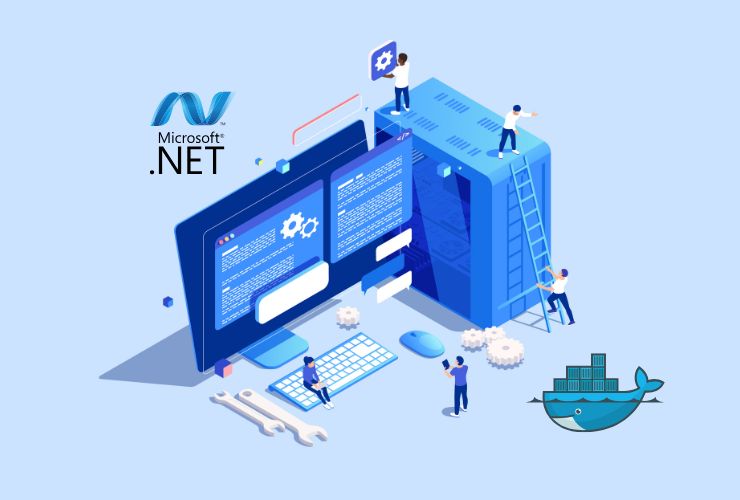What is a Custom Web Application?
A custom web application is essentially an application that operates within any web browser. When deciding which browser to use for your custom web app, comparing options like Brave vs. Firefox is essential for ensuring compatibility, features, and a smooth user experience. Unlike desktop apps, there’s no need to download; users can access the custom web application by simply logging into the website.
However, not every business will find a standard web app suitable for their needs. In these cases, a custom web app is the ideal solution. Built on the same concept, a custom web app is tailored to your specific business processes, offering a versatile and user-friendly experience with the flexibility to grow alongside your business operations.
So, is a custom web application what your business needs? Let’s explore how it can drive your success to the next level.”
Let me know if you’d like any further tweaks!
Why Custom Web Apps Are the Superior Choice: Data-Backed Insights
- Booming Custom Web App Market: Statista forecasts that revenue from custom web apps will rise by 5.01% annually from 2024 to 2029, reaching an impressive US$898.90 billion by 2029.
- Cost-Saving Advantages of Custom Web Apps: Many companies adopt custom web app solutions to enhance efficiency. G2 reports that web-based applications can reduce operating costs by as much as 47%.
- Rising Demand for Skilled Developers: The Bureau of Labor Statistics (BLS) projects a 25% annual increase in the number of software developers between 2022 and 2032.
- Shortage of Skilled Developers: Demand for custom web developers continues to outpace supply, with 78% of developer positions remaining unfilled for extended periods.
An engaging online presence is key to helping businesses like yours reach a vast audience and showcase your products and services. That’s where custom web apps come into play.
Custom web apps merge the seamless experience of native apps with the ease of accessing them through a browser on any device. They also deliver personalized solutions to meet your customers’ specific needs.
Having reviewed the data-driven case for custom web apps, let’s now explore the differences between desktop, mobile, and web applications.
Desktop, Mobile, or Web: Which App is Right for You?
Custom Web Application: Key Differences Between Desktop, Mobile, and Web Apps
It’s crucial for businesses and users to distinguish between desktop, mobile, and web apps, as each platform has unique strengths and limitations. Below is a summary of the key differences:
Desktop Apps: These applications are installed directly onto a computer’s operating system, delivering superior performance and deeper access to system resources. While they often provide a more feature-rich experience, they also require more development time and resources.
Mobile Apps: Built for smartphones and tablets, mobile apps offer a fluid experience with touch-based interactions. Available for download via app stores, they can utilize device-specific features like the camera, GPS, and notifications, enhancing user engagement.
Web Apps: Web apps are accessed through browsers and function across different platforms, providing convenience and flexibility. However, they may have limitations in performance and access to device-specific features compared to native desktop or mobile apps.
By evaluating the strengths and weaknesses of each platform, businesses can choose the approach that best aligns with their goals and user needs.
Now, let’s explore the unique advantages of custom web apps in more detail.
Benefits of Custom Web App Development for Your Business
1. Customized to Your Needs
A custom web app offers a tailored solution designed specifically to meet your unique business needs. Working closely with developers, you’ll have full control over the process—from developing a clear roadmap and defining deliverables and objectives to implementation and ongoing maintenance.
If you’re finding it difficult to locate an off-the-shelf solution that fits seamlessly into your business model, a custom web app is the perfect answer. It’s built specifically to solve your challenges.
The features can be customized to suit your exact requirements, making the app intuitive and user-friendly. Plus, your team will be able to navigate and utilize the solution more efficiently, maximizing its potential for your business.
2. Huge Savings
It’s no secret that developing a custom web app comes with a higher upfront cost compared to an off-the-shelf solution.
However, it’s important to consider the long-term savings. While a custom web app may require a larger initial investment, it can save you money over time. You won’t need to pay for unnecessary features, and you’ll avoid recurring licensing fees or usage package costs.
With a custom app, you own the solution outright. Additionally, if you choose to outsource your web app development to a software development company, you can further cut costs by reducing the need for in-house infrastructure and devices.
3. Customized Brand Design
There’s no question that your web app needs to be visually appealing. With a custom approach, you can perfectly align the design with your brand identity.
Ultimately, users are drawn to visually engaging experiences that capture their attention and encourage further exploration. That’s why focusing on your app’s unique visual design is essential. While off-the-shelf solutions offer limited customization, a custom web app allows for unlimited design flexibility, making it the ideal choice for a truly distinctive and tailored look.
4. Scalability and Flexibility
These two adjectives—scalable and adaptable—perfectly describe custom web apps. A custom web app grows with your business, eliminating the need to purchase or upgrade to more expensive plans.
For a business to thrive, it needs a system capable of handling increased traffic and easily integrating new functionalities. Custom web apps meet these needs with their flexibility, allowing them to adjust to evolving demands.
This scalability and adaptability are key reasons why many businesses choose custom web apps over off-the-shelf solutions. Additionally, custom software allows for modifications without difficulty, which is particularly valuable in dynamic industries like e-commerce or entertainment.
5. Enhanced efficiency
Custom web apps enhance workflow efficiency, enabling you to accomplish more in less time with greater accuracy.
Tailored specifically to your business’s unique needs, a custom web app addresses your specific requirements, eliminating the need to worry about mundane tasks. If you have repetitive tasks, a custom web app can streamline and accelerate your routine processes.
This results in significant time savings and increased productivity. Additionally, with all your information consolidated in one place, you can easily manage it and automate repetitive tasks, further boosting efficiency.
6. Scaled Competitiveness
For small businesses, competing against industry giants is a significant challenge. Relying on off-the-shelf solutions often means blending in with the competition. Custom web apps, however, offer a strategic advantage.
With a custom solution, you gain a competitive edge. A unique, tailored app helps you stand out from the crowd, making it easier for potential customers to find and choose your business.
Additionally, a custom web app allows you to shape the software to fit your vision, rather than adapting your ideas to fit a pre-existing app. This flexibility ensures that your app perfectly aligns with your business needs and goals.
7. Minimized Custom Pain Points
Ready-made solutions often offer minimal customization options, requiring numerous amendments and sometimes leaving certain aspects unchanged. Additionally, each modification can come with significant costs.
In contrast, a custom web app addresses these challenges effectively. Since it’s tailored specifically to your needs, you have full control over the design and functionality. With custom web application development, the possibilities are endless, allowing you to create a solution that perfectly fits your requirements.
8. 24/7 Access
This is particularly appealing to businesses that operate remotely.
Whether your team accesses the web app from home or the office, they will benefit from seamless data availability. You no longer have to worry about when or where you can access your data; it’s readily available whenever and wherever you need it.
Moreover, web apps allow easy access based on user-defined permissions. The only requirement is an internet connection. Unlike other solutions, web apps provide access through nearly any browser and device, offering unmatched flexibility.
9. Safety and Security
Security and safety are crucial aspects of custom web-based application development and require careful attention from developers. When handled properly, strong security measures can protect against potential threats.
Recent statistics reveal that India experienced a high rate of ransomware attacks, with over two-thirds of organizations affected in recent years.
Custom web apps offer the advantage of data retrieval via the cloud. All you need is a device, an internet connection, and login credentials to access your data, which is cost-effective and less time-consuming than reinstalling and redeveloping a commercial app on a new device.
Commercial apps often have minimal security and known vulnerabilities that hackers can exploit. In contrast, custom-coded apps are generally more secure and harder to breach, making them a tougher target for hackers.
10. Integration
Custom web apps offer seamless integration with your business’s workflow. One of the standout benefits of custom web app development is the ability to integrate databases effortlessly.
Additionally, you can synchronize front-end and back-end activities smoothly. This means that any information entered on the website will be automatically updated in the database. Custom web apps can also be easily integrated with other tools that are already part of your business process, enhancing overall efficiency.
11. Zero Dependencies of Developers
When opting for off-the-shelf software, your business becomes reliant on the software provider for pricing, terms, and conditions of use. Additionally, accommodating future needs for additional functionalities or features can result in both time and financial costs.
In contrast, custom apps offer more flexibility. Businesses can use and adapt them as long as needed. While some maintenance costs are involved, the long-term benefits and scalability often outweigh the initial investment.
What Are The Technologies Used In Web Applications?
The choice of technology stack for a custom web application is crucial in determining its performance, scalability, and maintainability. While there’s no one-size-fits-all solution, here’s a breakdown of key components to consider:
Front-End Development:
- HTML, CSS, and JavaScript: These are the basic technologies for creating user interfaces.
- Front-end frameworks: React, Angular, and Vue.js are popular for making user experiences more dynamic and interactive.
- UI/UX libraries: Bootstrap, Material UI, and Foundation offer pre-built components for faster development.
Back-End Development
- Programming languages: Python, Ruby, JavaScript (Node.js), Java, and PHP are often used.
- Frameworks: Django, Ruby on Rails, Express.js, Spring, and Laravel are common for building server-side logic.
- Databases: Your options include relational databases like MySQL, PostgreSQL, and SQL Server, or NoSQL options like MongoDB and Cassandra.
Additional Considerations
- Cloud Platforms: AWS, Azure, or GCP to handle hosting and infrastructure.
DevOps Tools: Use Git for version control and Jenkins or CircleCI for continuous integration and continuous delivery (CI/CD). - API Integration: Tools like Swagger or OpenAPI for designing and documenting APIs.
By carefully choosing and combining these technologies, developers can create strong, scalable, and user-friendly web applications that help businesses succeed.
The Problem: One-Size-Fits-All Doesn’t Cut It
Many businesses rely on generic web solutions. However, these often lack the functionality and flexibility to address specific needs, leading to:
- Limited features and functionalities, hindering operational efficiency.
- Inefficient workflows and wasted resources impact productivity and profitability.
- Inability to scale with business growth, causing limitations as your company expands.
- Security vulnerabilities and data breaches, putting your business and customer information at risk.
The Solution: Custom Web Applications – Tailored for Success
Custom web applications are built from the ground up to address your unique challenges and goals. They offer:
- Unmatched Functionality: Develop features that perfectly align with your specific business processes, optimizing workflows and boosting efficiency.
- Enhanced User Experience: Create a user-friendly interface that caters to both your customers and internal teams, leading to improved customer satisfaction and employee engagement.
- Seamless Integration: Integrate seamlessly with your existing business tools and software, eliminating data silos and streamlining operations.
- Unparalleled Security: Implement robust security measures tailored to your business needs, providing superior protection against data breaches and cyberattacks.
Fantastic! Custom web apps are a proven strategy for transforming your business and unlocking its full potential.
If you’re ready to develop a custom web app and achieve the results you desire, the next step is to find a trustworthy development partner.
Fortunately, you don’t need to look far. Our team of experts is ready to drive your business towards success and growth.














